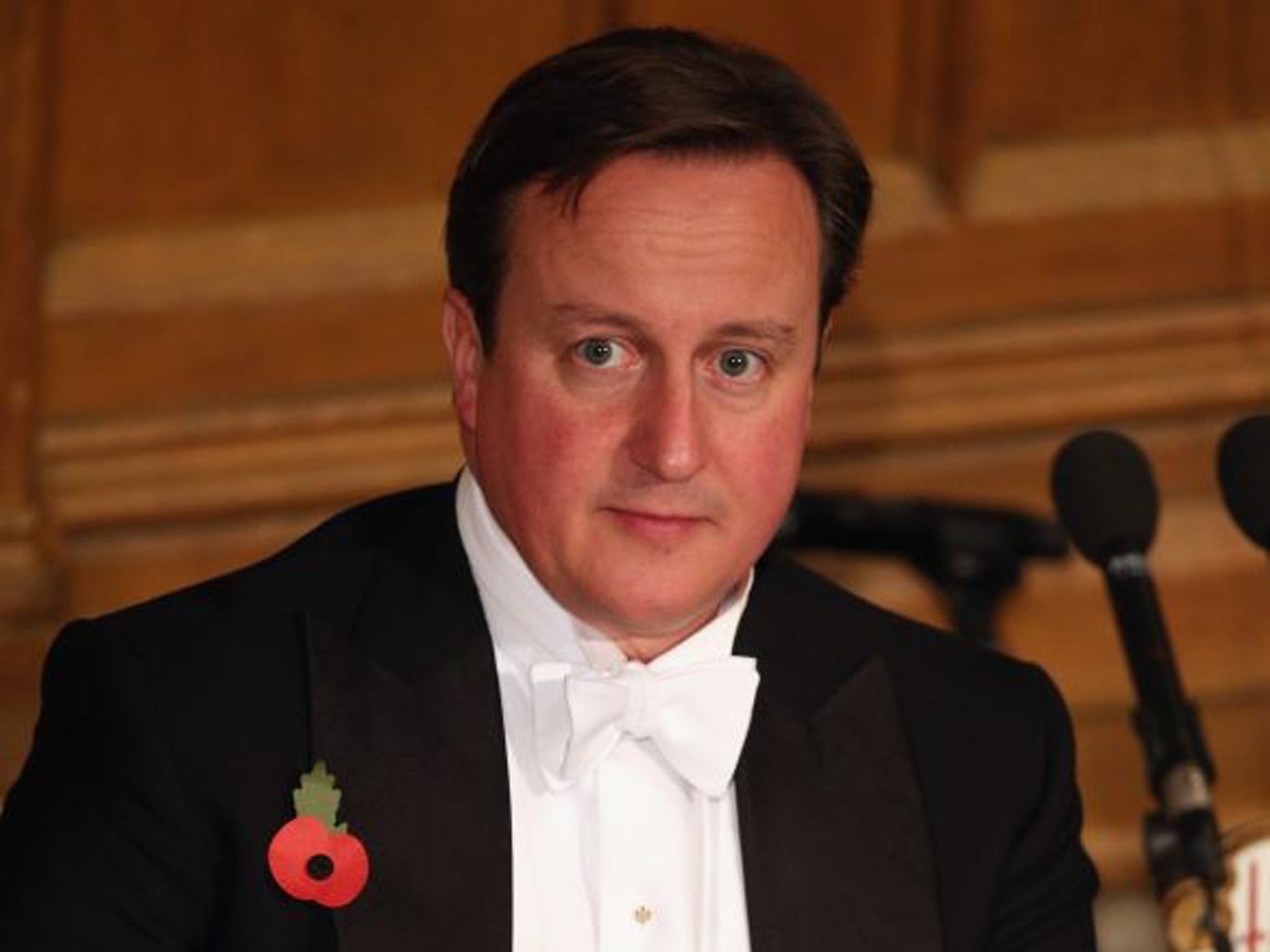David Cameron to lead trade delegation to China
Visit will be part of a drive to strengthen business relationship between Britain and Beijing

Your support helps us to tell the story
From reproductive rights to climate change to Big Tech, The Independent is on the ground when the story is developing. Whether it's investigating the financials of Elon Musk's pro-Trump PAC or producing our latest documentary, 'The A Word', which shines a light on the American women fighting for reproductive rights, we know how important it is to parse out the facts from the messaging.
At such a critical moment in US history, we need reporters on the ground. Your donation allows us to keep sending journalists to speak to both sides of the story.
The Independent is trusted by Americans across the entire political spectrum. And unlike many other quality news outlets, we choose not to lock Americans out of our reporting and analysis with paywalls. We believe quality journalism should be available to everyone, paid for by those who can afford it.
Your support makes all the difference.David Cameron is to lead a new trade delegation to China to capitalise on the thaw in Britain's relations with Beijing.
The Prime Minister said he wanted to forge a relationship for the long term that would open up markets for British firms while bringing more Chinese investment into the UK.
The announcement, made in his annual address to the the Lord Mayor's banquet at the Guildhall in the City of London, would appear to indicate the rift with Beijing has finally healed.
Relations were effectively put into deep freeze last year after Mr Cameron infuriated the Chinese by meeting the exiled Tibetan spiritual leader, the Dalai Lama.
Last month, Chancellor George Osborne took a business delegation to China in the first high-level contact between the two governments for 18 months.
Mr Cameron, who has already made one visit to China since becoming Prime Minister, will be taking a large party of ministers and business leaders early next month.
The Treasury said on its Twitter feed that the Prime Minister's visit to China meant that Mr Osborne's Autumn statement would be put back a day from December 4 to December 5.
“As China's new leadership sets its direction for the next 10 years, as their country's star continues to rise in the world, I will take senior British ministers - as well as business leaders from every sector, large and small - to forge a relationship that will benefit both our countries and bring real rewards for our peoples,” he said.
“Opening the way for British companies to benefit from China's vast and varied markets and preparing the way for a new level of Chinese investment into the UK.
“This is a relationship that is for the long term, that matters for Britain and China, and which I look forward to continuing to strengthen in the months and years to come.”
In his visit last month, Mr Osborne announced that Chinese firms would be allowed to invest in a new generation of nuclear power stations while visa restrictions would be relaxed to encourage high-spending Chinese to come to London.
In his speech, Mr Cameron - who is leading trade visits to India and the Gulf this week - said he hoped to encourage more investors from the Gulf with a new electronic visa waiver system for short-term visitors from Oman, Qatar, the United Arab Emirates, and Kuwait.
He argued that the economic rise of countries such as China, India and Brazil should not be seen as a threat to the West, but as an opportunity for Britain to carve out a place alongside them in a more prosperous world.
“As the number of university places surges in India, as China creates more patents than any other country in the world, and as Brazil becomes the world's first sustainable biofuels economy, people ask the question, will they be the winners and we be the losers? I believe we need to say a very firm 'no',” he said.
“The global economy is not a zero-sum game. If we make the wrong decisions, they may well succeed at our expense but there is a clear way forward for us to carve out a place for Britain to be a real success, alongside these new economic powers.”
PA
Join our commenting forum
Join thought-provoking conversations, follow other Independent readers and see their replies
Comments